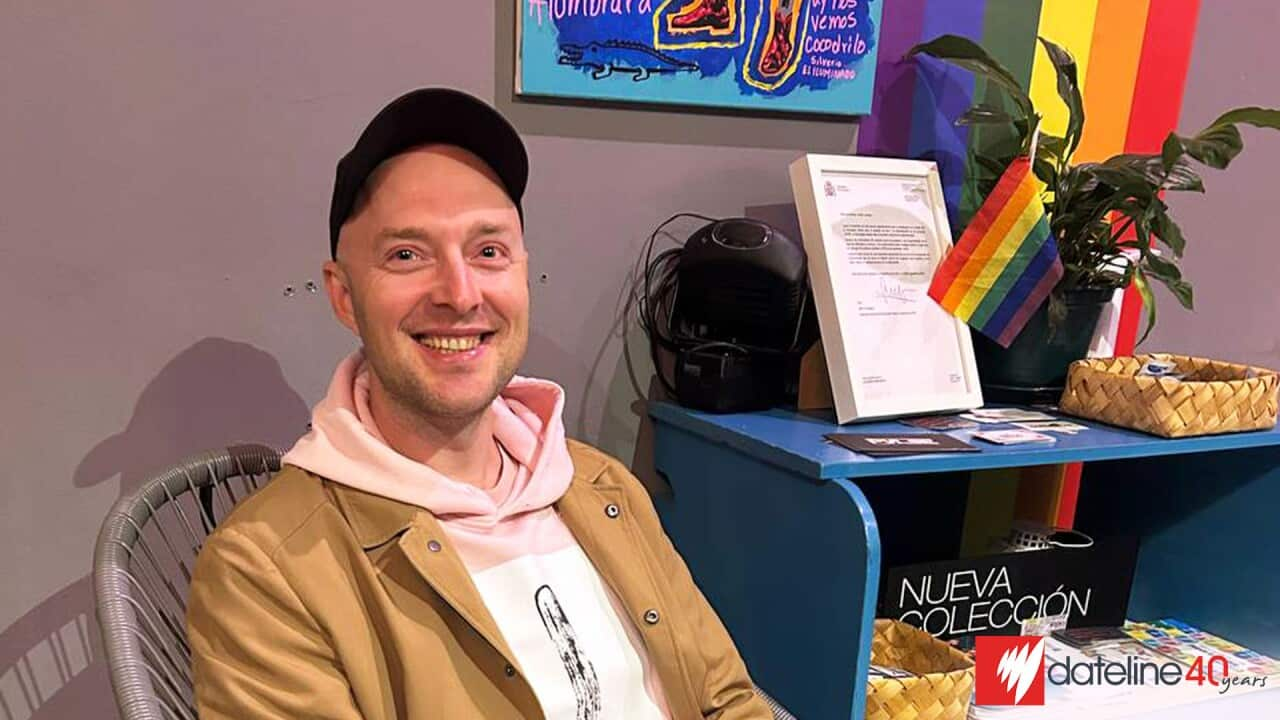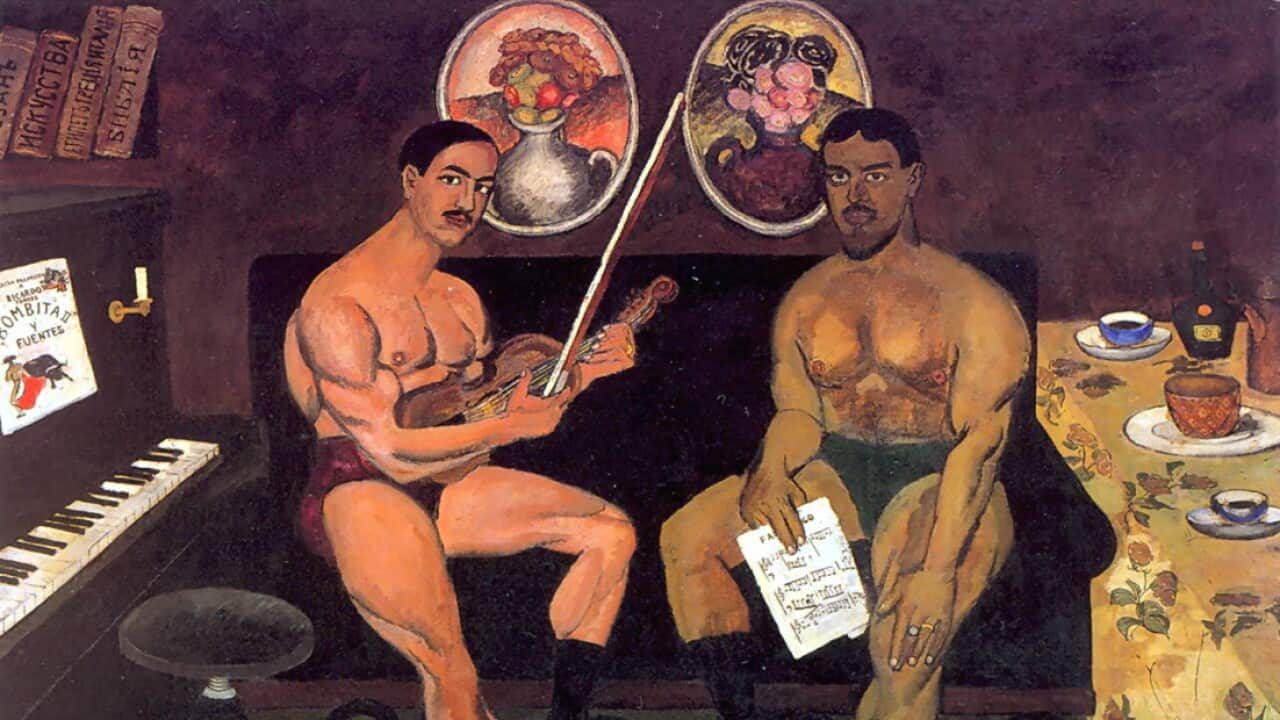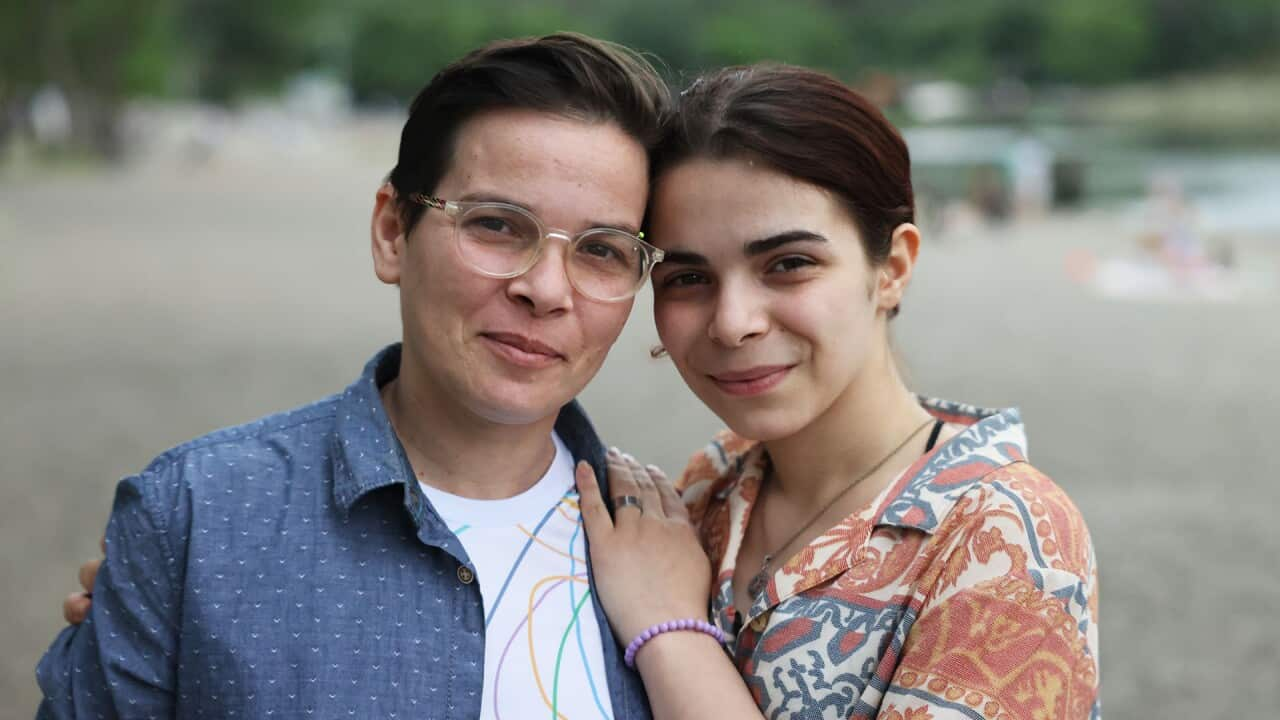Vladimir Kosarevskiy loved his job.
As the director of Moscow’s Anna Akhmatova library, he oversaw its transformation into a ‘smart library’, the first of its kind in the Russian capital. The 2,500-square-metre space included a coworking area, cinema, and even a recording studio. With its state-of-the-art facilities and a diverse array of cultural and arts events, the library became a popular community centre for locals and a source of pride for city officials.
But as the Russian government expanded its crackdown on gay and transgender rights, Kosarevskiy, 40, found it difficult to reconcile his identity as a gay man with public service. The breaking point came when Russian authorities gave him orders to destroy dozens of books, including those deemed ‘propaganda of non-traditional relations’.
‘Don’t ask, don’t tell’
Russia has always been a difficult place to be gay. Although the Soviet-era laws that treated homosexuality as a crime and a mental illness had been abolished in the 1990s, homophobia persisted.
LGBTIQ+ organisations were tolerated, Kosarevskiy says. He was involved in Russia’s LGBT Sport Federation and ran a movie club for queer people and their allies at his library. But the unwritten social code enforced silence about one’s sexual identity. And while he sensed that others suspected he was gay, he conformed to the norm of keeping his personal life private in fear of hostile reactions.

Vladimir Kosarevskiy (left) talks to Moscow Mayor Sergey Sobyanin (right) at the reopening of the Anna Akhmatova smart library after renovation in 2018. Source: Supplied
In 2013, the Russian parliament passed a bill criminalising what it called ‘propaganda of non-traditional sexual relations’ to minors. According to Kosarevskiy, the impact of the law wasn’t immediate. Rather, it would take some time to catch up with him and the broader Russian society.
By 2015, Kosarevskiy started to realise it was time to choose between his career and his LGBTIQ+ community. The library where he worked had a children’s section, which made Kosarevsky worry about putting himself at risk under the new law. He eventually decided to distance himself from the LGBT Sports Federation to avoid any controversy.
Book purge amid the war
Kosarevskiy's job became increasingly challenging after Russia invaded Ukraine in February 2022.
Public service employees like him were obligated to attend state-organised concerts and rallies aimed at boosting public support for the war. Being in a leadership position, Kosarevskiy was responsible for ensuring his team’s attendance but he felt ashamed to participate in propaganda events for the war he opposed.

The Anna Akhmatova smart library was once touted as the most innovative library in Moscow. Source: Supplied / Vladimir Kosarevskiy
As the government targeted critics of its invasion, the list of organisations and individuals declared ‘foreign agents’ grew longer. The crackdown extended beyond independent journalists and human rights activists. Musicians, writers, and scientists who spoke against the war found themselves losing their jobs and were forced to leave the country.
Books written by those labelled by ‘foreign agents’ were quietly censored. Book stores and libraries were instructed to remove them from shelves and online catalogues.
In early December 2022, President Vladimir Putin signed a bill expanding the 2013 gay propaganda law. It was now illegal to promote ‘non-traditional sexual relations, paedophilia, and gender reassignment’ in books, mass media, films, and the internet.
Following the complete ban, librarians across Russia started to receive further orders to discard books, this time mentioning same-sex relations.
For Kosarevskiy, it was the last straw.
He leaked a list of books to a journalist, prompting Moscow’s Department of Culture to deny the reports, calling them ‘a rumour.’
“I couldn’t stop. I was on the edge. I’d been silent about being gay all my life. And once again, they came up with a new initiative against LGBT, and I had to keep silent again and dispose of books,” he said.
The list of 53 titles included popular young adult novels such as Stephen Chbosky’s The Perks of Being a Wallflower, as well as Stephen Fry’s memoir The Fry Chronicles, Haruki Murakami’s Sputnik Sweetheart, and even a Soviet textbook on sexology.
Later, a Russian independent media outlet, The Proekt, would reveal that one of Moscow’s top universities, the Higher School of Economics, had also been instructed to purge books and publications referring to same-sex relations. One of the blacklisted books was Summer in a Red Scarf, a Russian bestseller about two teenage boys who fall in love in a Soviet summer camp.

Living in Russia, Kosarevskiy conformed to an unwritten social code that enforced silence about one’s sexual identity. After the Russian government passed the so-called 'anti-gay propaganda law', he eventually decided to distance himself from the LGBTIQ+ sports community. Source: Supplied
“They saw books as a threat that can impact people’s worldviews and thinking. It, of course, increases the value of literature as documents,” he said.
Kosarevskiy realised that the scale of censorship on political dissent and the repressions against LGBTIQ+ people would only get worse. In the first week of 2023, he left Russia for Spain where he’s waiting for a decision on his asylum claim. In July, the Russian government outlawed gender reassignment surgeries and banned transgender people from adopting children. And on the last day of November, Russia's Supreme Court declared the so-called ‘international LGBT movement’ extremist.
“Your life can be destroyed at any moment, you can be detained, imprisoned, insulted, fined,” Kosarevskiy said. “They can do anything to you because there are no legal mechanisms [for protection], especially, after recognising the LGBT movement as extremist.”
Between learning Spanish, writing and public speaking, he is helping other queer Russians with information about immigration and seeking asylum. He says the number of people joining various support groups on the messaging app Telegram has grown significantly since the end of last year.
Lera Shvets is a producer at SBS Russian.













